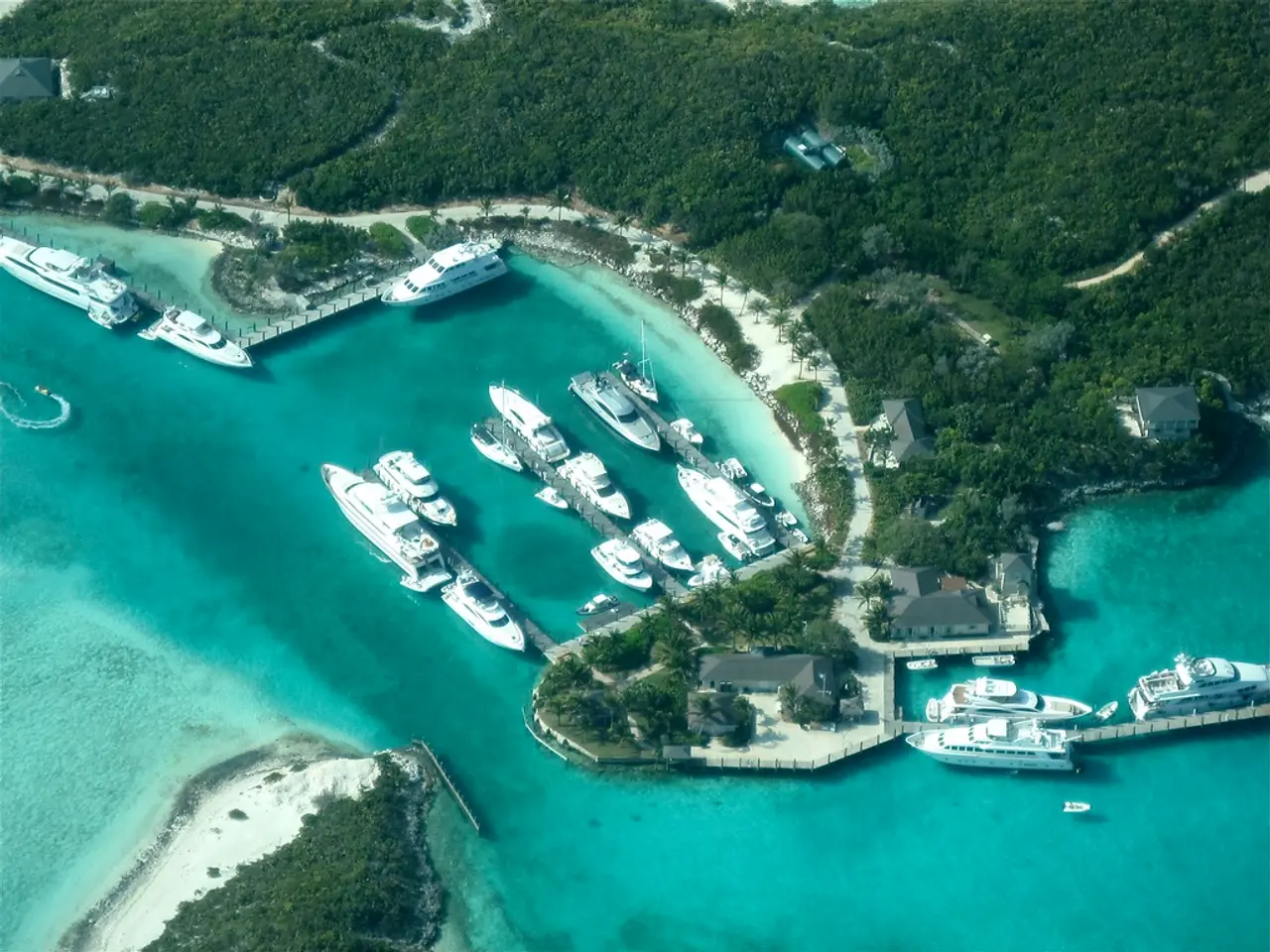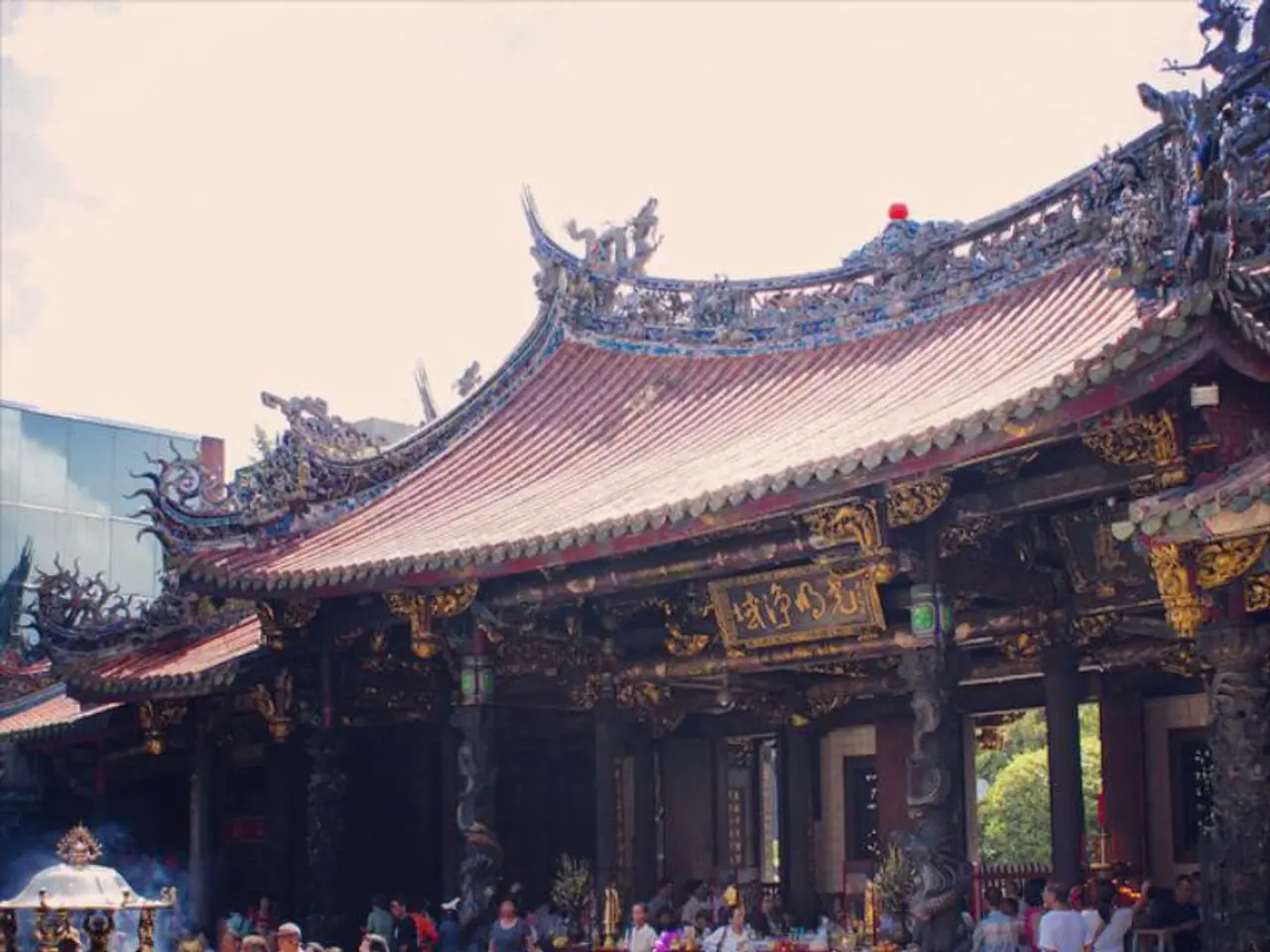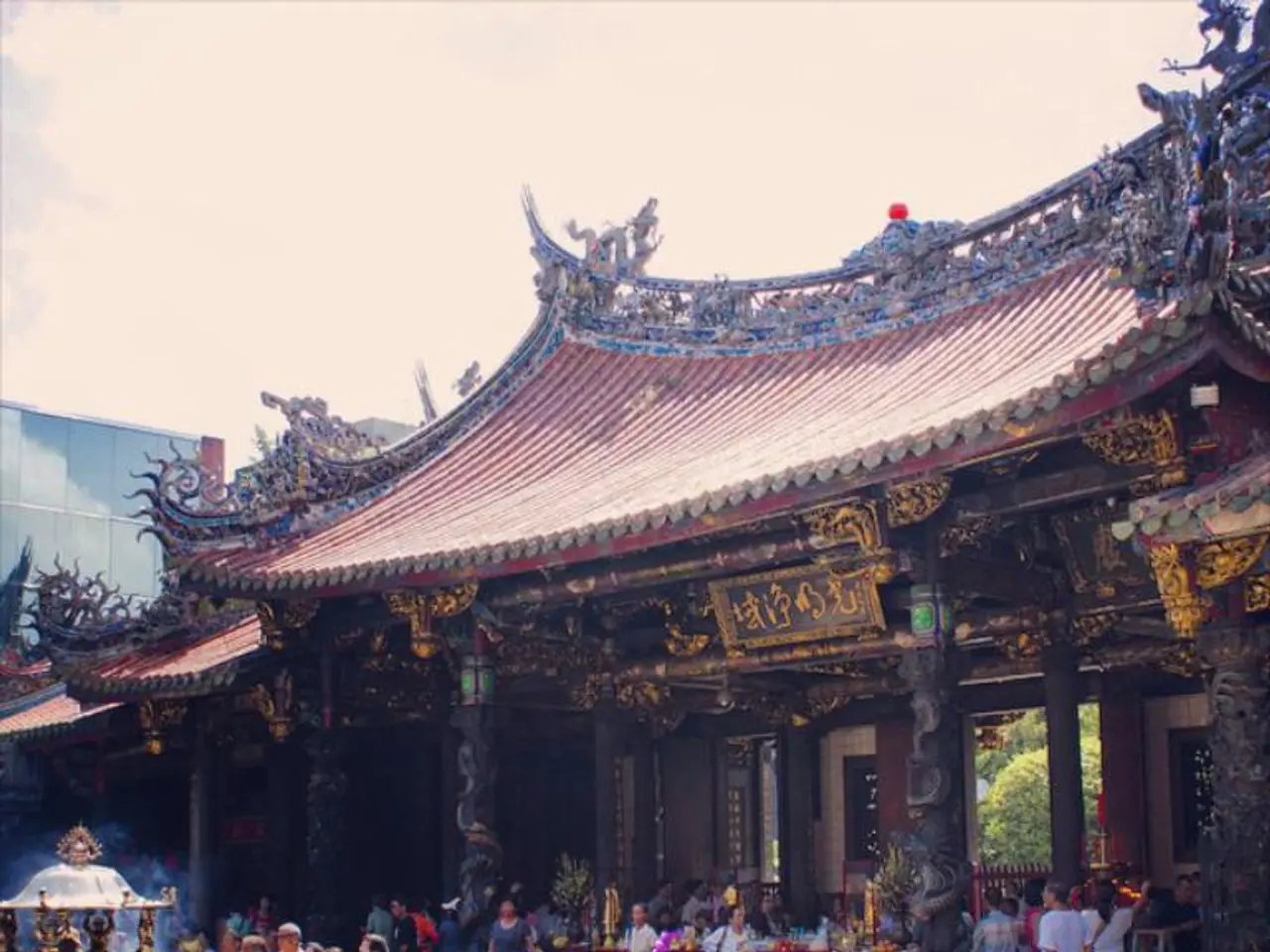President honors water professionals with specific accolades
In the heart of Central Asia, Kazakhstan is taking a proactive stance in managing its water resources, a critical aspect of its national security given the country's vast desert and semi-desert terrain.
One of the key priorities is ensuring clean drinking water for all residents, with a focus on supplying around 500 villages. The government is investing heavily in large-scale infrastructure projects, such as building 42 new reservoirs and renovating existing canals, to promote sustainable water use and reduce dependence on transboundary waters, particularly in agriculture.
Digital transformation is at the forefront of Kazakhstan's water conservation strategies. The Ministry of Water Resources and Irrigation, established in 2023, is spearheading the digital transformation of water monitoring and management systems, aiming to enhance precision and water accounting.
Kazakhstan is also leading regional cooperation through the International Fund for Saving the Aral Sea (IFAS), focusing on shared water bodies restoration and coordinated water use among Central Asian nations. The country is also involved in international partnerships for environmental restoration projects and hydrological research on transboundary water bodies like Lake Balkhash.
President Kassym-Jomart Tokayev has emphasised the importance of water conservation, stating that water is a source of life and an invaluable strategic resource for all countries. He has also highlighted the importance of rational water use, a pressing issue, and has introduced a tariff to encourage efficient water consumption.
The government is also taking steps to recognise and reward those working in the water industry. In 2024, water industry workers' wages increased by 25%, with further increases planned for the current year. Last year, the honorary title "Honored Worker of Kazakhstan's Water Industry" was established, and it was awarded to several industry veterans at a ceremonial event.
Furthermore, the Kazakh National University of Water and Irrigation has been established, and the number of scholarships for this specialty has doubled. The government is also actively supporting households using water-saving technologies, reimbursing up to 80% of their costs. These technologies are currently used on 470,000 hectares of land.
Kazakhstan advocates for rational, fair, and equal use of water resources and adherence to mutual obligations to ensure water security and stability in the region. President Tokayev has emphasised that ensuring the population with clean drinking water is a top priority.
Foreign investments are being utilised in the construction and modernization of water facilities. With around 30,000 people employed in the water sector, ensuring a steady water supply to cities, villages, industrial enterprises, and for irrigation, Kazakhstan is making significant strides in its water conservation efforts. As the saying goes, "There's even a demand for water" - every drop of water is valuable.
References: 1. [Link to source 1] 2. [Link to source 2] 3. [Link to source 3]
- Kazakhstan, in its commitment to environmental-science and climate-change mitigation, is implementing digital transformation in its water monitoring and management systems, under the guidance of the Ministry of Water Resources and Irrigation, established in 2023.
- Recognising the significance of water resources in policy-and-legislation, particularly in light of Kazakhstan's desert and semi-desert terrain, President Kassym-Jomart Tokayev has prioritised water conservation, encouraging rational water use and implementing a tariff to promote efficient consumption.
- In the broader context of general-news and international cooperation, Kazakhstan is leading regional initiatives, such as the International Fund for Saving the Aral Sea (IFAS), to restore shared water bodies and coordinate water use among Central Asian nations, and is also involved in partnerships for transboundary water body research and restoration projects.








